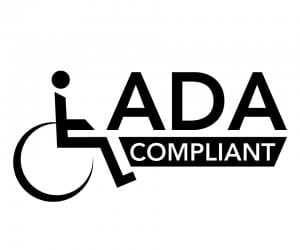A Plaintiff found out the hard way in a case decide d on April 7 that even the Employee is held to a reasonable cooperation standard in the interactive process under the Americans with Disabilities Act (“ADA”) designed to put in place reasonable accommodations for the Employee’s disability.
d on April 7 that even the Employee is held to a reasonable cooperation standard in the interactive process under the Americans with Disabilities Act (“ADA”) designed to put in place reasonable accommodations for the Employee’s disability.
In Ortiz-Martinez v. Fresnius Health Partners et al, PR, LLC et al (1st Cir. 2017), the Employee, a social worker, suffered a work related injury that kept her out of work for more than a year. Her physician cleared her to return while continuing to receive treatment. When she showed up asking for reinstatement, she gave her Supervisor a copy of a form from her physician with a diagnosis of a sprained left shoulder, arm, forearm, and hand and bilateral carpal tunnel syndrome. But the form had nothing about what accommodations were necessary to assist her in doing her job. Her Supervisor told her she could not return without more information about her restrictions and what accommodations were being requested. The Employee obtained a physician letter which was not specific about accommodations and the Supervisor complained that it “didn’t tell her anything.’’ The Supervisor then tried to reach the Employee by phone repeatedly over the next several days and even sent her a letter asking her to call to discuss how the Company could accommodate her injury so she could return to work. The Employee did not respond and instead filed a discrimination complaint with the Puerto Rico Department of Labor. After the complaint was filed, the Employee’s Union representative contacted her to tell her that the Supervisor was trying to reach her, but another 10 days went by before the Employee met with the Supervisor and was told again that more information about her medical restrictions was needed in order to determine how to accommodate her injuries. The Employee gave the Supervisor permission to contact her physician and a letter was sent requesting answers to specific questions, but there was no response. The Employer then wrote to the Employee, reported the lack of response from the physician and specified what information was being sought. The Employee never responded and, 7 months later, filed suit alleging that the Employer had failed to accommodate her disability in violation of the Americans with Disabilities Act.
In affirming summary judgment for the Employer from the District Court, the Appeals Court wrote that the Employee’s failure to make reasonable efforts to help the Employer determine what specific accommodations were necessary “caused the breakdown in the interactive process…






